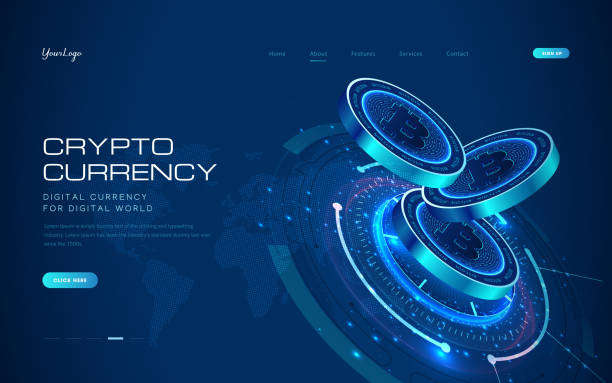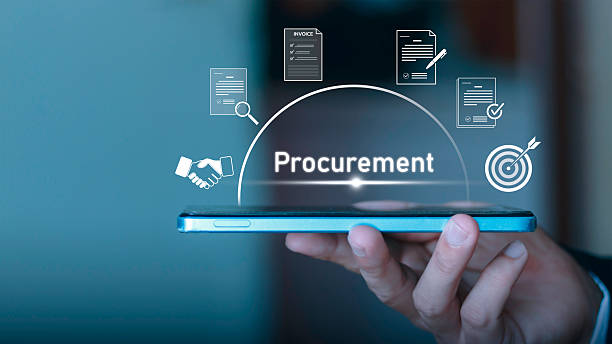When most people hear the word “blockchain,” they immediately think of Bitcoin or Ethereum. But while cryptocurrency helped bring blockchain into the spotlight, its potential stretches far beyond digital coins. In 2025, blockchain is revolutionizing industries such as healthcare, finance, real estate, and supply chain management by offering transparency, security, and decentralization like never before.
This article explores how blockchain technology is being used across sectors—and why its role is far more significant than just supporting crypto.
What Is Blockchain Technology? (In Simple Terms)
At its core, blockchain is a distributed digital ledger that records transactions across a network of computers in a way that is secure, transparent, and tamper-proof. Each block contains data, a timestamp, and a cryptographic hash of the previous block—making the chain virtually unchangeable.
Key features of blockchain include:
- Decentralization (no single point of control)
- Immutability (once data is written, it can’t be altered)
- Transparency (data is visible and auditable by participants)
These features make blockchain useful for more than just cryptocurrencies.
1. Supply Chain Transparency and Traceability
Blockchain is transforming supply chains by creating real-time, tamper-proof records of every step in a product’s journey—from raw materials to store shelves.
Real-World Applications:
- Food industry: Track food from farm to table, reducing fraud and improving food safety.
- Luxury goods: Authenticate designer items to fight counterfeiting.
- Pharmaceuticals: Ensure medicine integrity and prevent fake drugs.
Benefits:
- Boosts consumer trust
- Improves logistics
- Increases accountability across suppliers
2. Smart Contracts in Business and Law
Smart contracts are self-executing agreements coded on a blockchain. When certain conditions are met, the contract triggers itself—no lawyer or intermediary required.
Use Cases:
- Insurance: Automatic claim payouts when predefined conditions (like flight delays) are met.
- Real estate: Instant transfer of ownership and payment upon contract fulfillment.
- Freelance and gig economy: Auto-payments for completed tasks or milestones.
Why It Matters:
- Reduces legal costs
- Minimizes fraud
- Speeds up transactions
3. Blockchain in Healthcare
Healthcare is one of the most promising fields for blockchain innovation due to the need for secure, interoperable medical records.
Applications:
- Electronic health records (EHRs) that are universally accessible and patient-owned
- Medical research data sharing with verifiable consent and anonymity
- Drug supply chains to track authenticity and storage conditions
Outcomes:
- Enhanced patient privacy and control
- Faster diagnosis through real-time data sharing
- Reduced administrative burden for healthcare providers
4. Decentralized Finance (DeFi)
While technically tied to cryptocurrencies, DeFi represents a broader use of blockchain to offer financial services—without traditional banks.
Features:
- Lending and borrowing platforms (e.g., Aave, Compound)
- Decentralized exchanges (DEXs) for token trading
- Stablecoins for payments and remittances
Impact:
- Expands financial access to the unbanked
- Lowers transaction fees
- Enables borderless financial systems
DeFi is reshaping what it means to access and manage money. Keeping track of real-time metrics like the PEPE to USD conversion rate or any other crypto is essential for users looking to maximize value across decentralized platforms.
5. Digital Identity Verification
In a digital age, proving who you are online is essential—but current systems are fragmented and prone to breaches.
Blockchain Solution:
- Create self-sovereign identities controlled by the user, not by a central authority.
- Store credentials (passports, licenses, degrees) securely on the blockchain.
Advantages:
- Reduces identity theft
- Eliminates duplicate registrations
- Speeds up KYC (Know Your Customer) processes in banks and government services
6. Voting and Governance
Blockchain offers a secure, transparent alternative to traditional voting systems—making elections more fraud-proof and trustworthy.
Features:
- Voter identity can be verified without revealing personal data
- Votes are permanently recorded and immutable
- Results can be instantly tallied and audited
Countries and local governments are testing blockchain voting to improve civic engagement and prevent tampering.
7. Intellectual Property and Digital Rights
Creators often struggle to prove ownership or receive fair compensation in the digital world.
Blockchain Solutions:
- Timestamped proof of creation for art, music, writing, and software
- Smart contracts for automatic royalty payments
- NFTs (non-fungible tokens) to establish uniqueness and provenance
This empowers artists and content creators to protect and monetize their work more effectively.
8. Real Estate and Land Registries
Blockchain simplifies real estate transactions by providing clear, public ownership records and reducing paperwork.
Use Cases:
- Tokenized real estate that allows fractional ownership
- Blockchain land registries in developing countries to prevent fraud and disputes
The result is more transparent, efficient, and secure property transactions.
Challenges to Mainstream Adoption
Despite its potential, blockchain faces several hurdles:
- Scalability: Many blockchains still struggle with slow transaction speeds.
- Regulation: Unclear or inconsistent laws across countries create uncertainty.
- Interoperability: Different blockchains can’t always communicate with each other.
- Energy use: Proof-of-work systems (like Bitcoin) can be energy-intensive, though greener alternatives like proof-of-stake are gaining traction.
The Future of Blockchain (2025 and Beyond)
The future of blockchain lies in integration, regulatory clarity, and user-friendly applications. As developers overcome scalability and accessibility issues, more people will interact with blockchain—often without even realizing it.
We’ll likely see:
- Governments embracing digital IDs and blockchain-based registries
- Global supply chains standardized through decentralized ledgers
- Decentralized applications (dApps) becoming common in daily life
Conclusion: More Than Just Crypto
Blockchain technology is no longer just the backbone of Bitcoin—it’s a powerful tool driving innovation in nearly every sector. From revolutionizing healthcare to transforming finance and enabling new forms of digital trust, blockchain’s role extends far beyond cryptocurrency.
As awareness grows and technology matures, we’re witnessing the beginning of a decentralized, transparent, and more efficient digital world.
So the next time someone mentions blockchain, think bigger than crypto—think transformation.





Leave a Reply